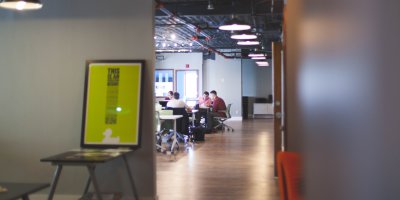
Can AI help find the best candidates? Source: Shutterstock
Want fair recruiters? AI might be able to help
EVERYTIME a new job is posted, CVs from hopeful candidates pour in – all of whom think they’re the right man for the job.
However, often, their CV is rejected right off the bat, based on a bias that the recruiter has. Some recruiters even justify this as their ‘gut instinct’.
“Even with the best intentions, hiring decisions can still be influenced by personal factors we may not even be aware of,” said Dell’s Chief Diversity & Inclusion Officer Brian Reaves.
Unfortunately, biases have quite a significant impact on candidates and the company.
To remedy the problem, businesses are looking at using artificial intelligence (AI) to screen the scores of resumes that applicants send in.
How can AI help?
Well, AI makes it easy for businesses to screen resumes. As a result, recruiters become more efficient. However, there’s way more to it than meets the eye.
Ideal, a company that offers an AI-based recruitment solution claims that AI ignores demographic-related information such as the candidate’s name, race, sex, and age during screening and shortlisting.
According to Ideal, resumes with white-sounding names receive requests for interviews 50 percent more often than identical resumes with African American-sounding names and resumes with English-sounding names receive requests for interviews 40 percent more often than identical resumes with Chinese, Indian, or Pakistani names.
Biases like these can be overcome with the help of an AI powered recruitment solution.
In fact, in the future, more AI solutions are expected to help human resources (HR) teams to make employee appraisals more transparent and free from bias.
“While recruitment is a current focus to alleviate bias, as companies continue to implement technologies, they can begin to track a candidate’s entire journey through the company. This will provide insight into all stages of the career life cycle, and identify additional areas where bias may be impacting a person’s day-to-day responsibilities and potential for advancement,” hopes Dell’s Reaves.
But is AI really fair?
The fact is, in the present state, AI doesn’t learn on it’s own. It’s an algorithm that people train.
When it comes to human resources, what’s the data that is available? Past job openings, applications for those openings, and successful hires.
Building a model based on that data, given the bias that crept into each of those hires, can be dangerous. In essence, we could be teaching AI to repeat our mistakes (in perpetuity).
“Personal prejudices can quickly become reflected in AI. In recruiting — a space in which sensitive and life-changing decisions are made all the time and in which we accordingly have established strong civil rights protections — these forms of vicious algorithmic bias are especially important to detect and act against,” Dipayan Ghosh, a Harvard fellow and former Facebook privacy and public policy official who is now with the New America think tank told the CNBC recently.
As things stand right now, it seems like AI isn’t ready to take over recruitments. However, tomorrow might bring something entirely new and exciting.
READ MORE
- Ethical AI: The renewed importance of safeguarding data and customer privacy in Generative AI applications
- How Japan balances AI-driven opportunities with cybersecurity needs
- Deploying SASE: Benchmarking your approach
- Insurance everywhere all at once: the digital transformation of the APAC insurance industry
- Google parent Alphabet eyes HubSpot: A potential acquisition shaping the future of CRM




